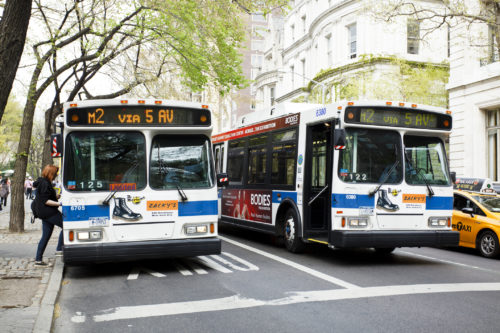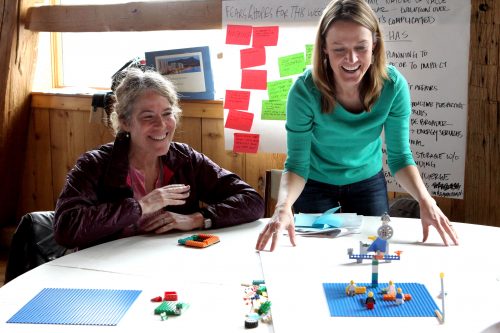
eLab Accelerator 2017
Electrification of Municipal Vehicles in New York

Project Objective
Create a robust plan for an Electric Bus program for the New York City MTA that addresses key barriers to pilot success and scalability.

Team Members
- Danny Ilioiu, Director of R&D, MTA New York City Transit
- Gordon Coor, Primary Project Manager for Manhattan
- Roger Straker, Primary Project Manager for Brooklyn
- Ari Kahn, Project Specialist, Electric Vehicle Demonstration Projects, ConEdison
- John Shipman, Department Manager - Demand Management and Customer Engagement, ConEdison
- Keith Hayes, VP Economic Development, New York Power Authority
- John Markowitz, Lead R&TD Engineer II - Integrated Grid, New York Power Authority
- Rajiv Diwan, Manager – Strategy Planning & Delivery, New York Power Authority
- Joseph (Bud) Nicoletti,Jr., P.E., 1st Deputy Commissioner, Westchester County Department of Public Works & Transportation

Project Description
NYC Transit and the MTA have a combined fleet of approximately 5,700 buses for public transportation in New York City. Though the current fleet currently consists of a mix of diesel, hybrid diesel and CNG (compressed natural gas) buses, electric buses have zero greenhouse gas (GHG) emissions and increasingly attractive economics
This project seeks a greater understanding of the factors to be considered when implementing bus electrification as well as the infrastructure and financial impact of bus charging both at the depots as well as on-route.
In pursuing these objectives, this project intends to facilitate and advance the adoption of electric buses which may provide benefits to various stakeholders including: increased public health due to emissions reductions from the replacement of diesel buses, reduced noise from operations, lower environmental impact including carbon emission reduction, and attractive total cost of ownership.

Progress Made to Date (pre-Accelerator)
National and global benchmarking studies, business case analysis and buy-in, preliminary identification of two electric bus vendors to service identified routes demonstrating performance and potential limitations of both bus depot and en-route charging. Initial stakeholder outreach and discussions with EPRI regarding data requirements to ensure successful scalability.

Accelerator Outcomes
At Accelerator, the team worked collaboratively to explore micro and macro level issues that would need to be addressed through the course of the demonstration to ensure the project is positioned for successful scaling. Micro level issues included, but were not limited to: • Reliability of the buses must remain unaffected • Bus cost per mile for both energy and maintenance must be lower • Customer satisfaction must not decline • Local grid impact is not prohibitive • EV bus deployment results in positive environmental and health benefits • A reduction in GHG, aligning the MTA (and other agencies including Con Edison, NYPA, and Westchester County) with New York’s REV/CES goals Macro level issues included, but were not limited to: • Gaining a better understanding and effectively communicating the real costs and benefits of distributed resources as part of New York’s electricity system • Can regulatory frameworks, pricing structures, and business models of utilities and distributed resource developers be better aligned to enable varied solutions that yield the greatest benefit to customers and the people of the State of New York as a whole? • How can we accelerate the pace of economic distributed resource adoption?

Project Background Information
Immediately after E-Lab, Gov. Cuomo issued a press release regarding the effort:
Governor Cuomo Announces Green Bus Pilot Program in New York City